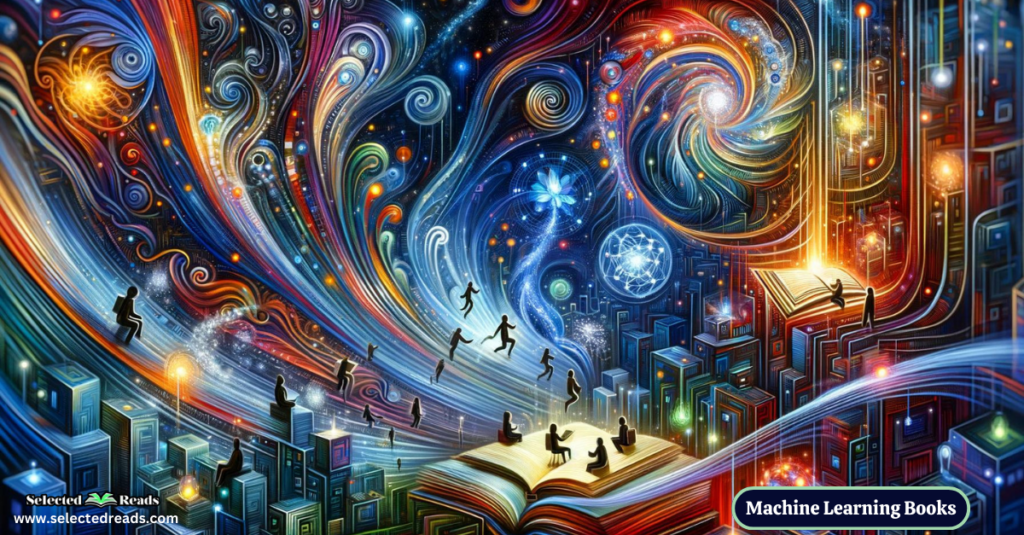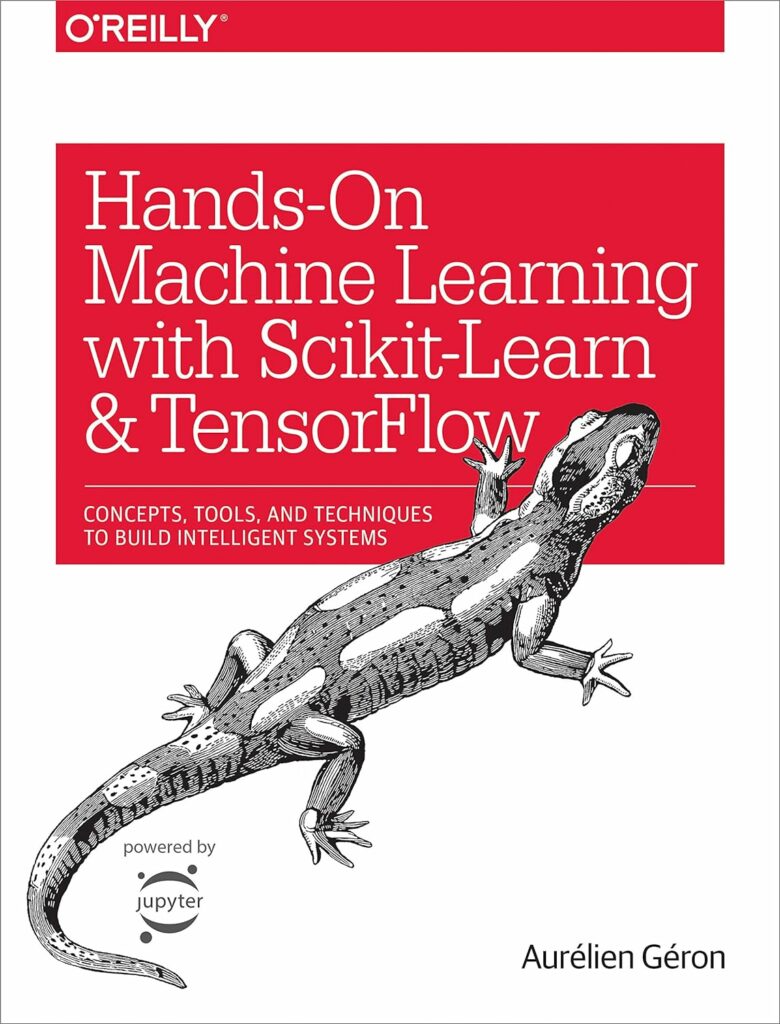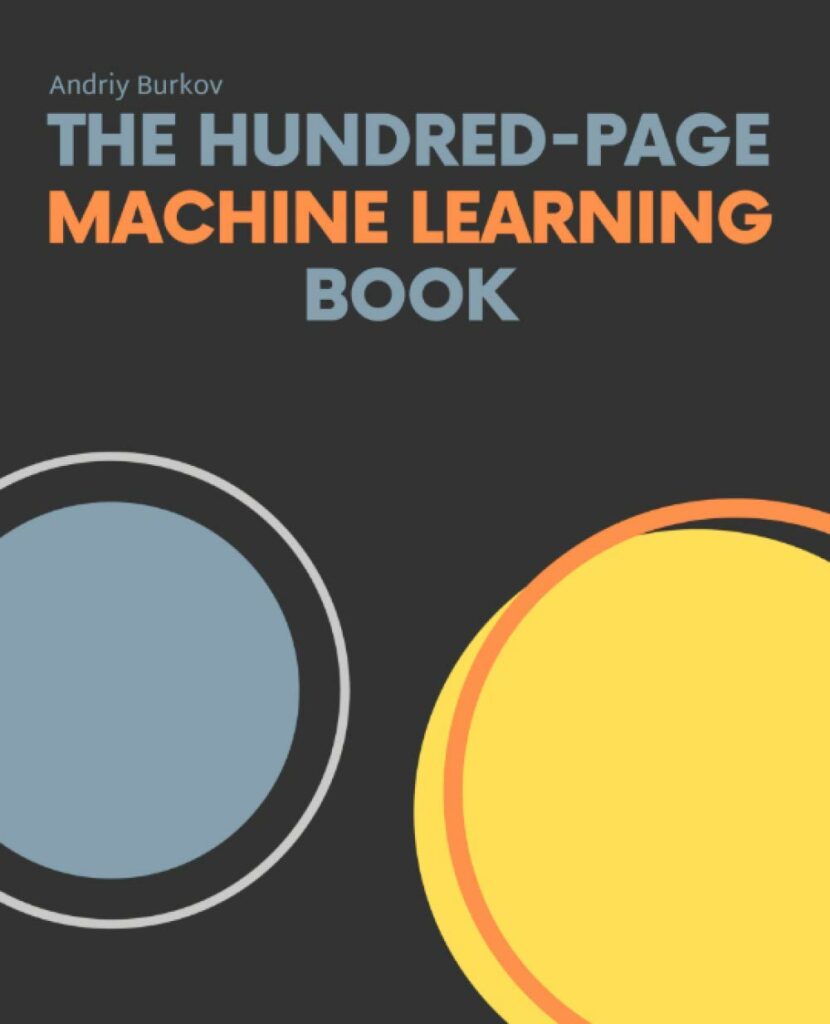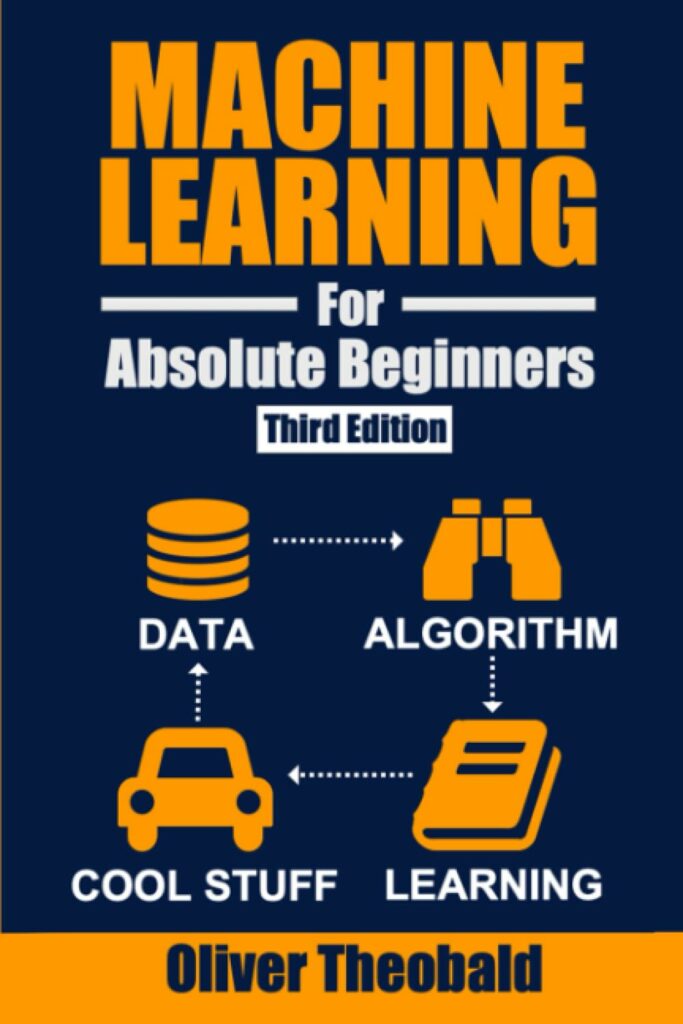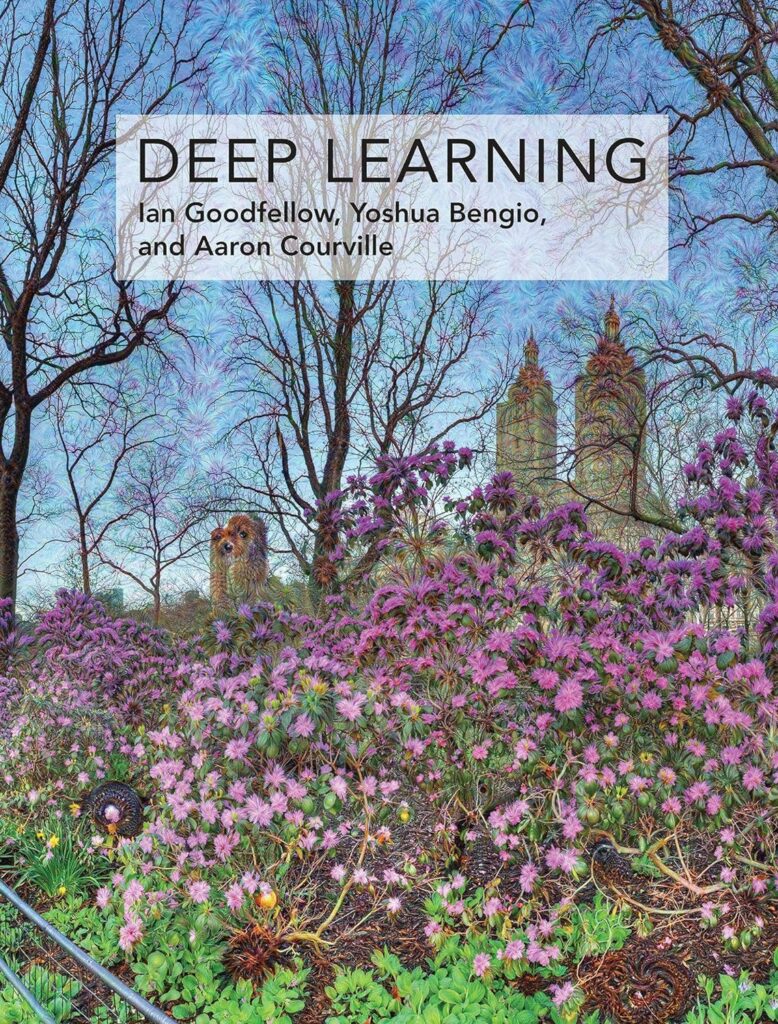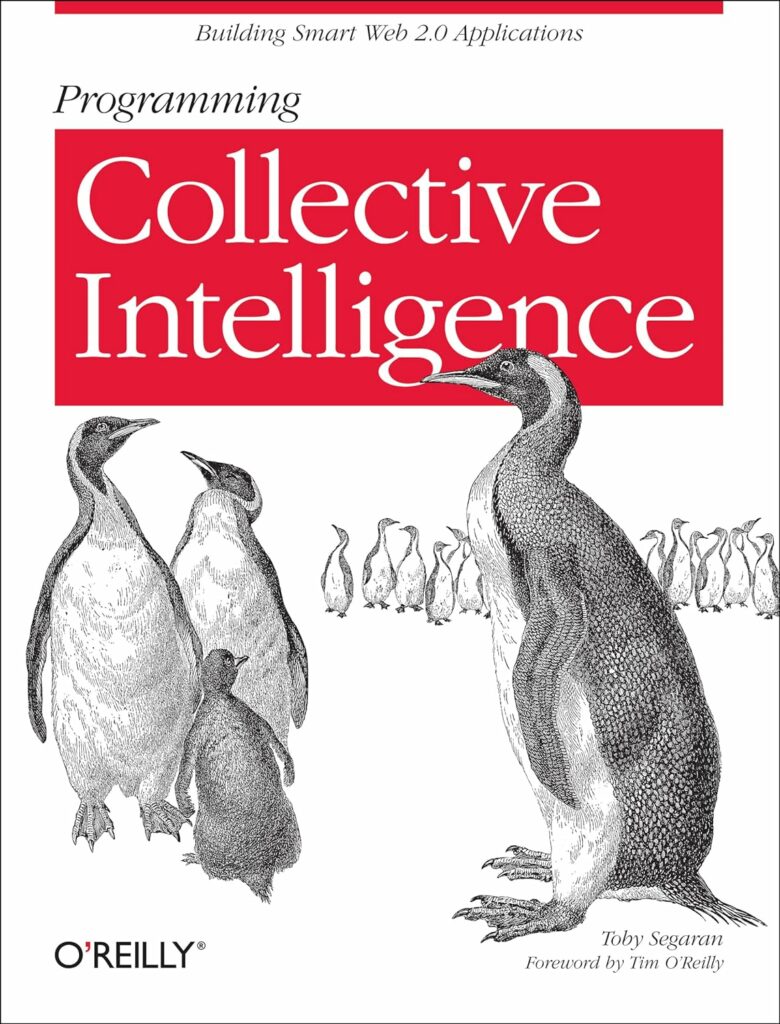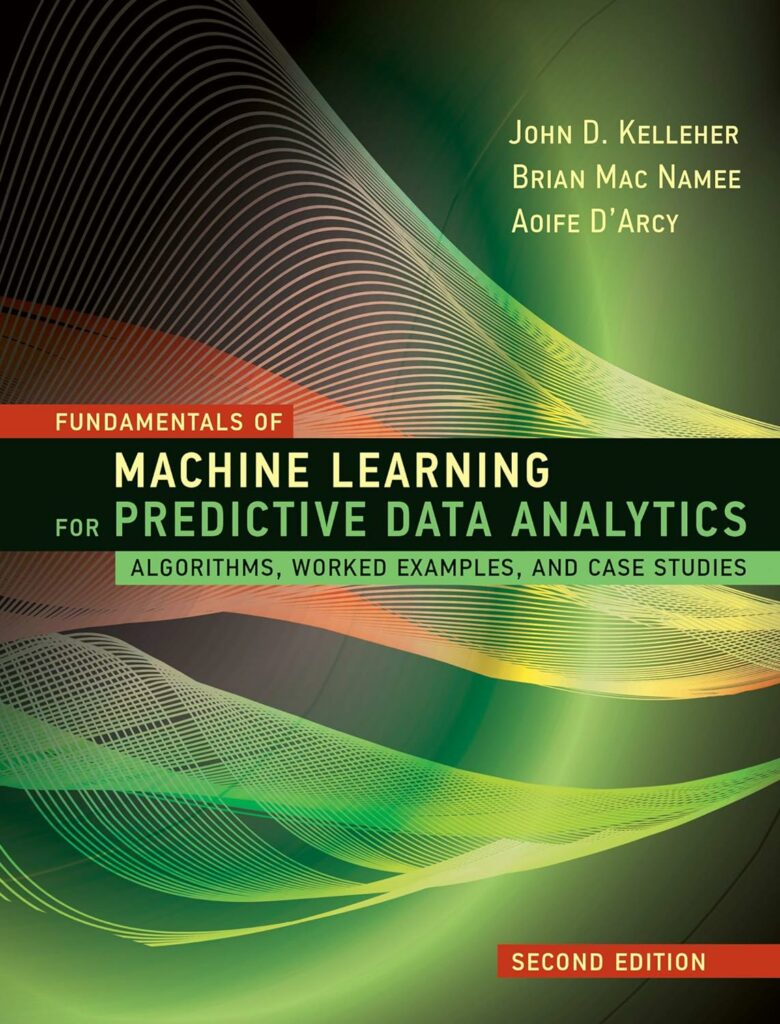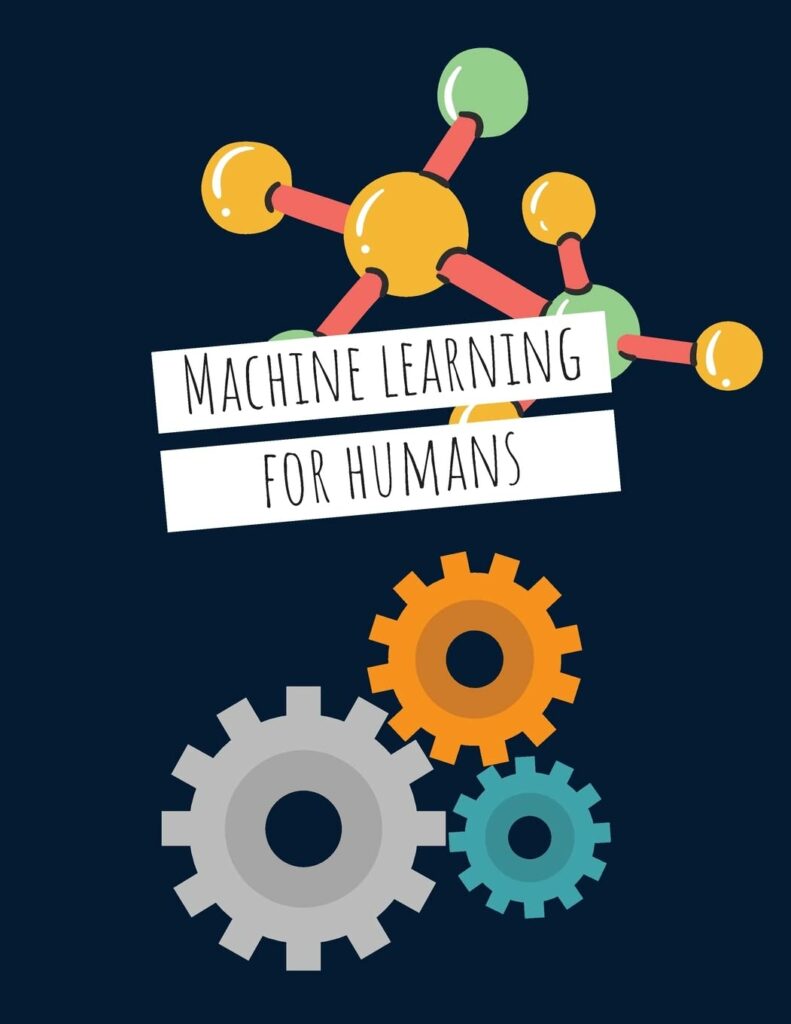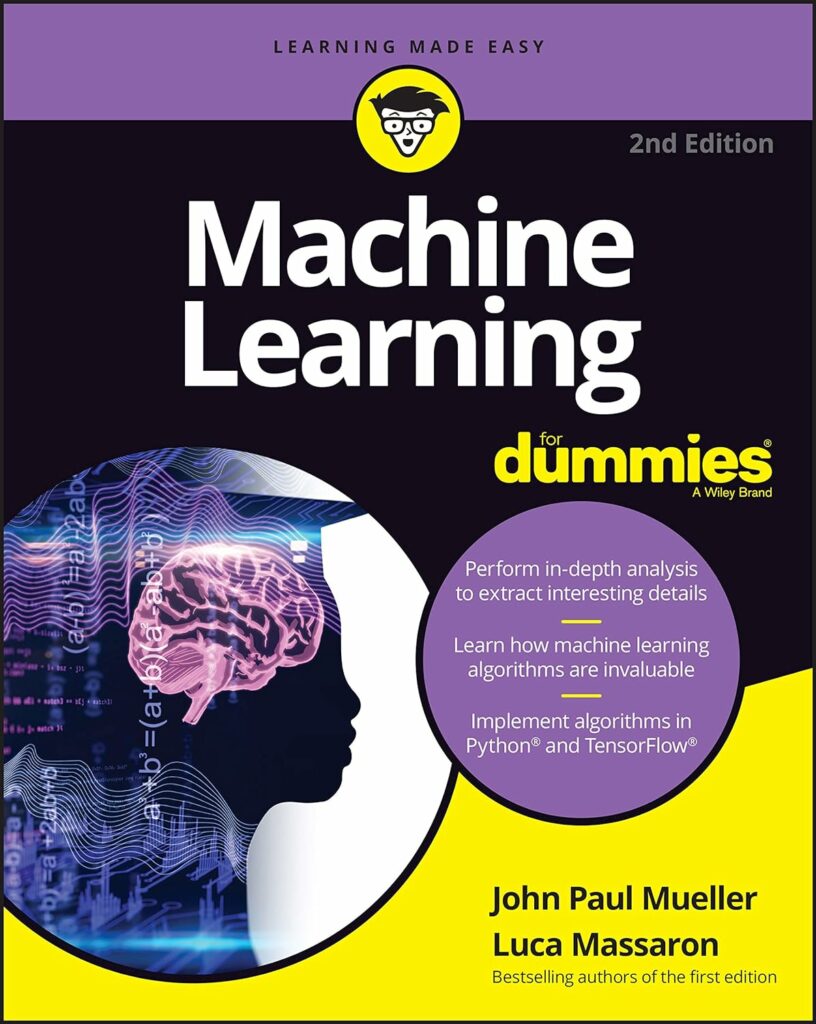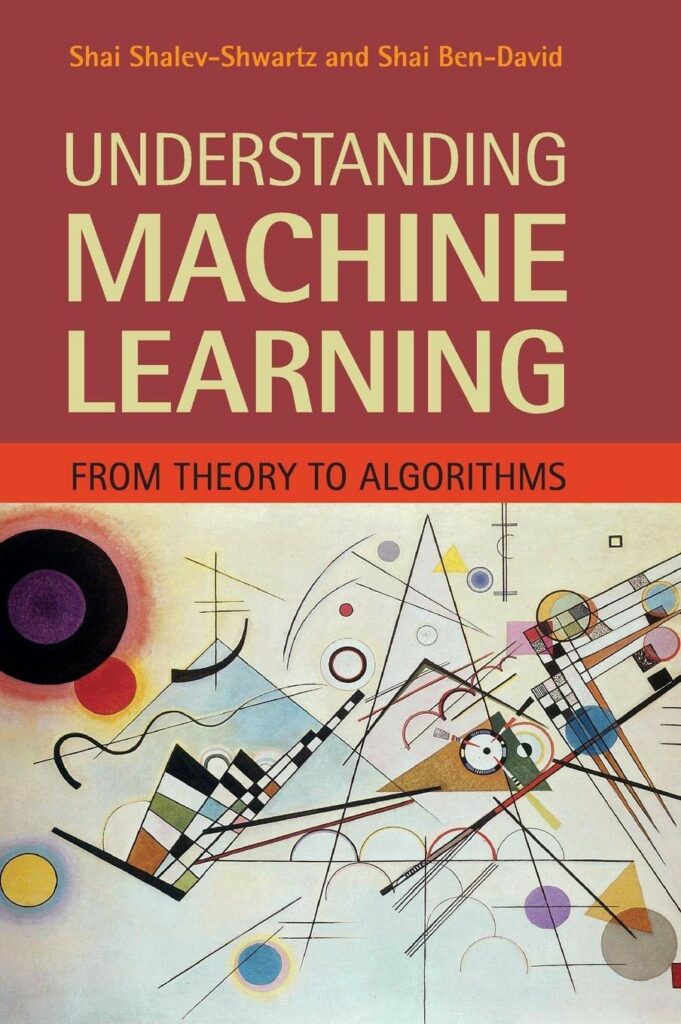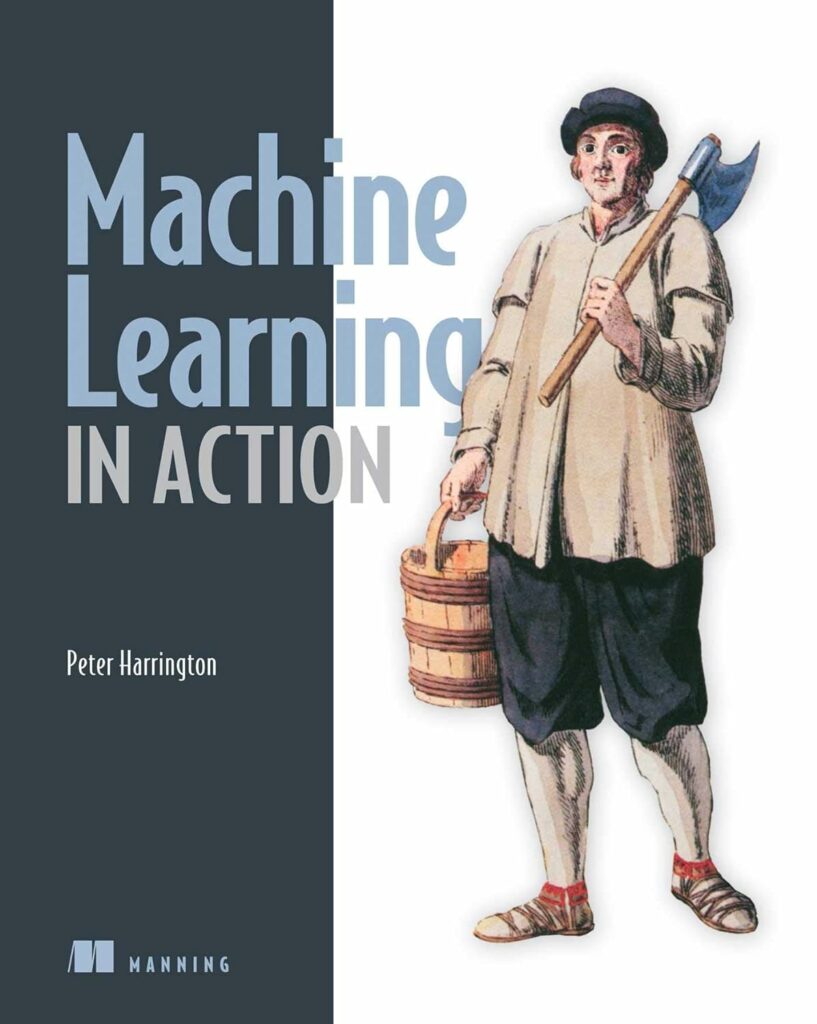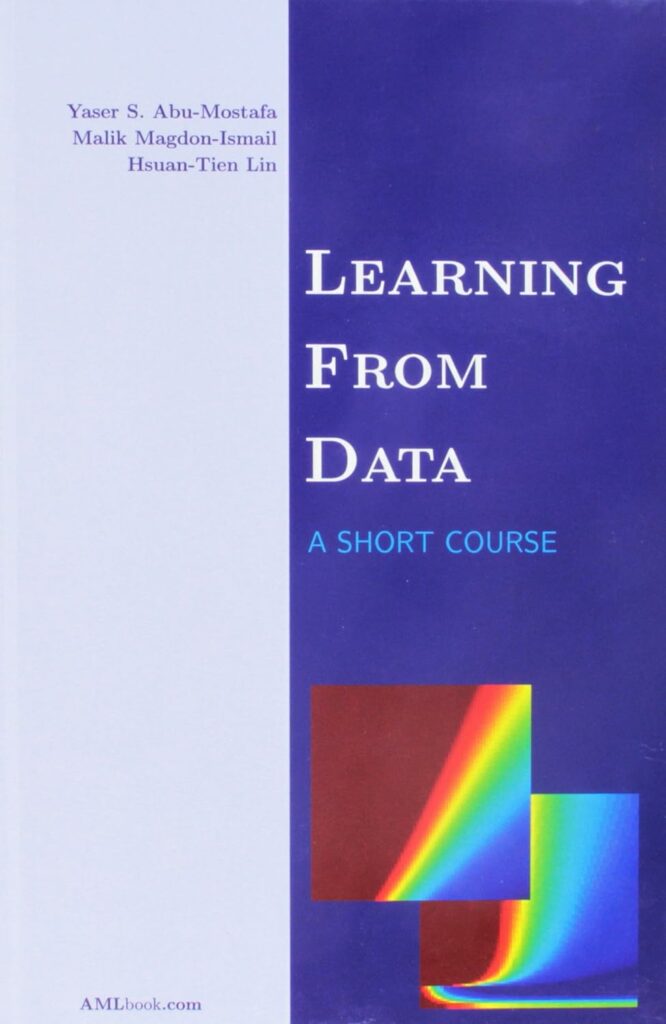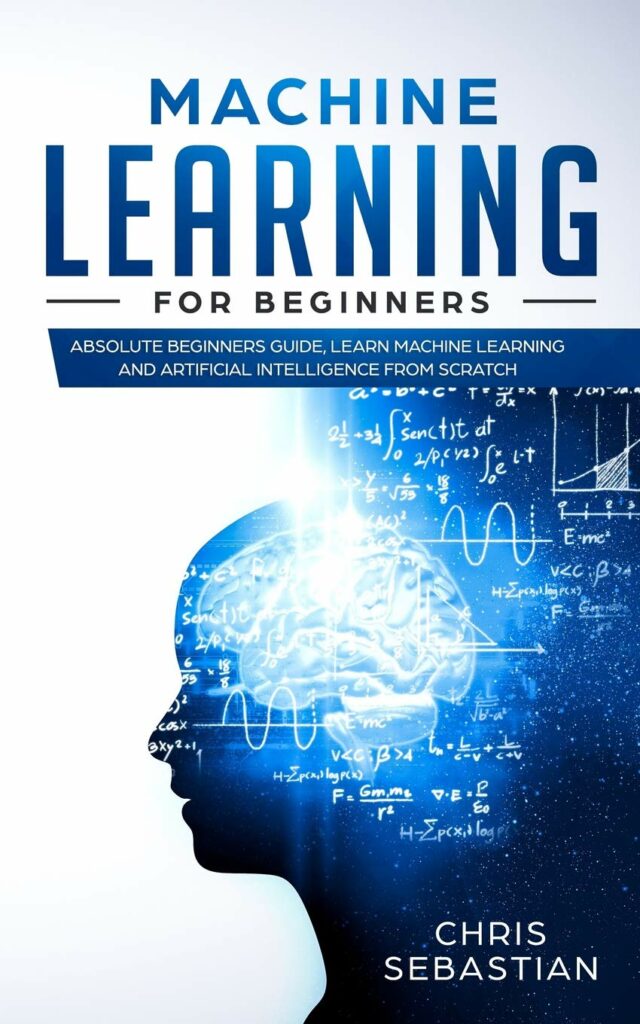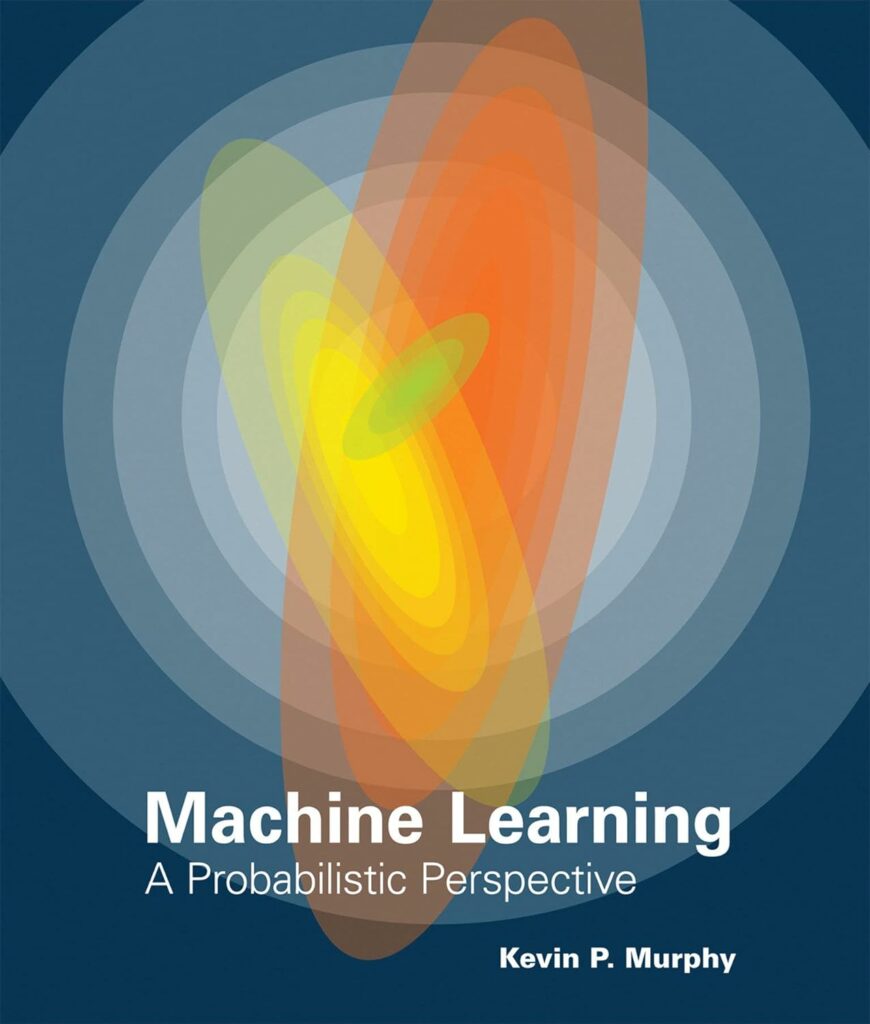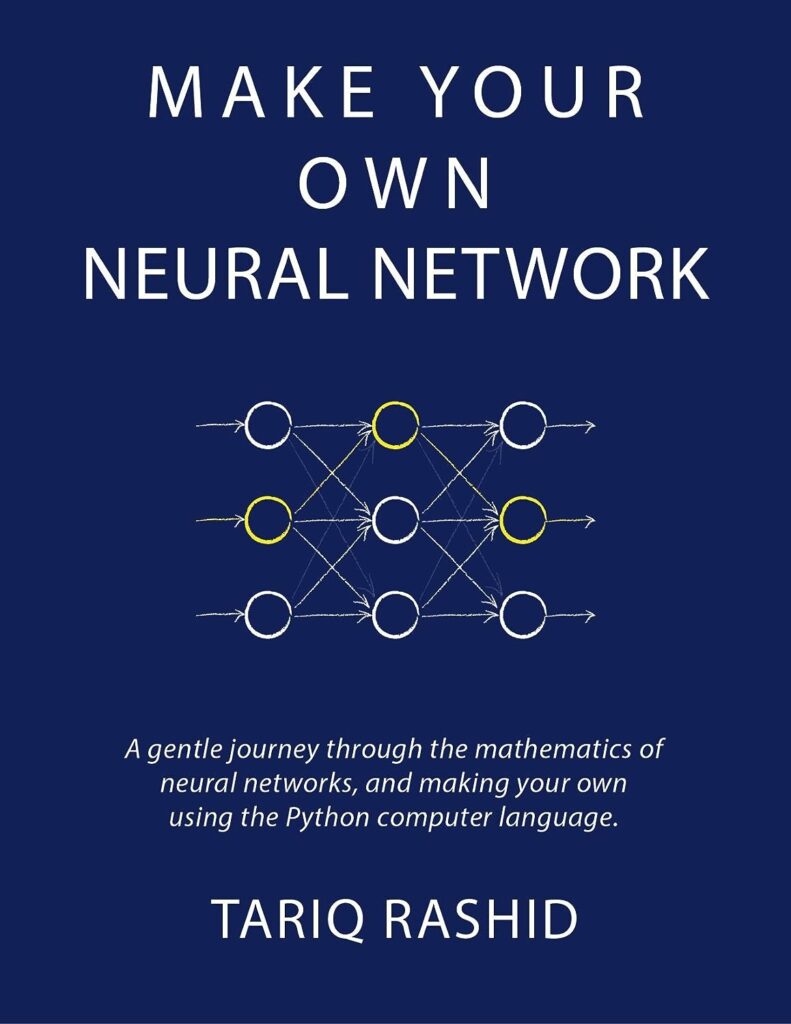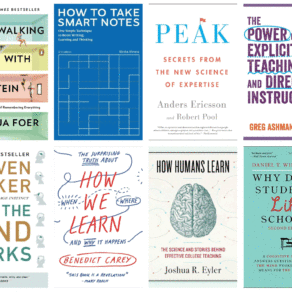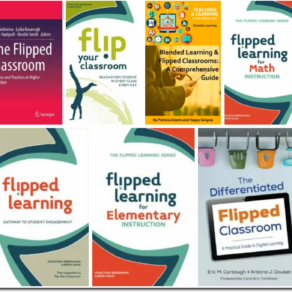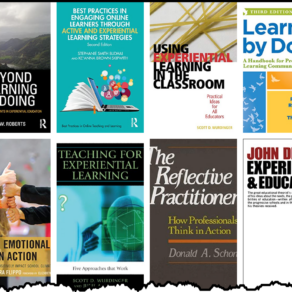With the AI revolution in full swing, machine learning becomes a topic of interest for several people including those like me who have no technical background in this area. To help familiarize you with the whole foundations of machine learning, I went ahead and curate this collection of interesting books on machine learning.
These reads will introduce you to the core concepts and algorithms in a manner that is accessible, engaging, and practical. From demystifying complex theories to offering hands-on coding experiences, these books serve as invaluable guides for aspiring machine learning enthusiasts. They are curated to cater to a broad spectrum of learners, ensuring that even those with minimal background in mathematics or programming can make significant strides in understanding and applying machine learning principles.
Books on Machine Learning for Beginners
Here our top picks for books on machine learning:
1. Hands-On Machine Learning with Scikit-Learn and TensorFlow, by Aurélien Géron
Aurélien Géron’s “Hands-On Machine Learning with Scikit-Learn and TensorFlow” demystifies the complex field of machine learning by breaking it down into more understandable and actionable parts. It’s perfect for programmers with a basic understanding who want to dive into the world of machine learning without getting overwhelmed by theory. Through practical examples and minimal theoretical discussion, Géron uses two major Python frameworks to introduce readers to a variety of machine learning techniques, from simple linear regression to deep neural networks.
2. The Hundred-Page Machine Learning Book, by Andriy Burkov
Andriy Burkov’s “The Hundred-Page Machine Learning Book” is praised for its succinct yet comprehensive coverage of machine learning fundamentals, making it a solid starting point for beginners and a quick refresher for seasoned practitioners. Despite its brevity, the book doesn’t shy away from the math behind the algorithms, offering a broad view of the field that encompasses both theory and practice. Esteemed figures in the AI and machine learning community endorse it for its clarity and utility, highlighting its role as a primer that doesn’t replace more detailed texts but rather complements them by providing a quick and accessible overview of the essential concepts in machine learning.
3. Machine Learning for Absolute Beginners, by Oliver Theobald
Oliver Theobald’s “Machine Learning for Absolute Beginners” serves as an entry point for those new to machine learning, requiring no prior coding experience and focusing on clear, plain-English explanations. The third edition enhances the reader’s learning experience with extended chapters, quizzes, free video tutorials, and downloadable resources, ensuring that beginners not only grasp the core concepts but can also practice them through Python coding exercises. It’s an ideal choice for anyone looking to start their journey in machine learning gently and efficiently, with a clear path laid out for moving beyond the basics when ready.
4. Deep Learning, by Ian Goodfellow, Yoshua Bengio, Aaron Courville
“Deep Learning” by Ian Goodfellow, Yoshua Bengio, and Aaron Courville is a comprehensive resource that dives deep into the nuances of deep learning, a subset of machine learning that has revolutionized fields like natural language processing and computer vision. The authors provide a robust mathematical and conceptual foundation, covering everything from linear algebra to the latest deep learning techniques. This book is designed for students and professionals alike, offering insights into both the theoretical underpinnings and practical applications of deep learning, making it a valuable resource for anyone serious about mastering this cutting-edge area.
5. Programming Collective Intelligence, by Toby Segaran
Toby Segaran’s “Programming Collective Intelligence” is a treasure trove of knowledge for developers interested in leveraging web data through machine learning. This book stands out by demonstrating how to apply sophisticated algorithms to mine the vast amount of data generated on the Internet, covering topics from recommendation systems to optimization algorithms. Segaran’s approachable writing style, coupled with practical code examples, makes complex concepts accessible to developers without a deep background in machine learning, encouraging readers to experiment and apply these techniques in their own web applications.
6. Fundamentals of Machine Learning for Predictive Data Analytics, second edition, by John D. Kelleher, Brian Mac Namee, Aoife D’Arcy
The second edition of “Fundamentals of Machine Learning for Predictive Data Analytics” by John D. Kelleher, Brian Mac Namee, and Aoife D’Arcy is an essential read for those looking to grasp the core principles of machine learning. It bridges the gap between theoretical knowledge and practical application, using worked examples and case studies to illustrate how machine learning algorithms can be applied in real-world predictive data analytics. With a focus on both the mathematical foundations and the latest advancements, including deep learning, this book is a comprehensive guide for students and professionals seeking to deepen their understanding of predictive analytics.
7. Machine Learning For Humans: Introduction to Machine Learning with Python, by Vishal Maini, Samer Sabri
Vishal Maini and Samer Sabri’s “Machine Learning For Humans” is precisely what its title suggests: an accessible, no-nonsense introduction to machine learning for anyone with a basic grasp of high school math. Emphasizing practical understanding over theoretical complexity, the book guides readers through the fundamentals of machine learning, from data preparation to building and evaluating models in Python. It’s an excellent resource for beginners eager to apply machine learning to real-world problems, offering clear explanations, examples, and exercises that demystify the subject and make it approachable for non-experts.
8. Machine Learning For Dummies, by John Paul Mueller, Luca Massaron
“Machine Learning For Dummies” by John Paul Mueller and Luca Massaron is an approachable guide that demystifies machine learning for those at the start of their journey. Unlike other texts that might require a deep background in programming or mathematics, this book welcomes readers with open arms, requiring little more than curiosity about the subject. It’s a practical introduction to the world of artificial intelligence, showcasing how machine learning is applied in diverse fields like fraud detection, search optimization, and more. The authors make a point to simplify the underlying math principles, proving that you don’t need to be a math wizard to start building models and applying machine learning to solve real-world problems.
9. Understanding Machine Learning: From Theory to Algorithms, by Shai Shalev-Shwartz, Shai Ben-David
Shai Shalev-Shwartz and Shai Ben-David’s “Understanding Machine Learning: From Theory to Algorithms” offers a thorough introduction to the theoretical foundations and algorithms that underpin machine learning. This book is designed to bridge the gap between theory and practice, making the principles of machine learning accessible to students and beginners in the field. By providing a detailed theoretical account of the fundamental ideas and the mathematical derivations behind practical algorithms, the authors equip readers with a deep understanding of the subject. This book is ideal for advanced undergraduates or beginning graduate students, as well as non-expert readers interested in gaining a comprehensive understanding of machine learning.
10. Machine Learning in Action, by Peter Harrington
Peter Harrington’s “Machine Learning in Action” marries the foundational theories of machine learning with the practical aspects of implementing these theories into tools for data analysis. This book is perfect for developers seeking to apply machine learning in their work but who may not have a background in this area. Harrington focuses on Python to demonstrate the implementation of algorithms for tasks like classification and forecasting. The book’s clear tutorial style, absence of academic jargon, and practical examples make it an invaluable resource for readers looking to enhance their skills in statistical data processing and analysis.
11. Learning From Data, by Yaser S. Abu-Mostafa, Malik Magdon-Ismail, Hsuan-Tien Lin
“Learning From Data” by Yaser S. Abu-Mostafa, Malik Magdon-Ismail, and Hsuan-Tien Lin is a comprehensive introduction to machine learning that emphasizes the importance of adapting performance through accumulated experience. This book is designed for a short, yet thorough, course in machine learning, balancing theoretical knowledge with practical applications. The authors, who bring a wealth of teaching and consulting experience, offer a solid foundation in machine learning fundamentals, complemented by online resources that keep pace with the latest trends in the field. This text is an essential read for anyone looking to grasp the core concepts of machine learning, with a balanced approach to the mathematical and heuristic aspects of learning from data.
12. Machine Learning for Beginners, by Chris Sebastian
Chris Sebastian’s “Machine Learning for Beginners” is an inviting exploration into the burgeoning fields of machine learning and artificial intelligence. Written for absolute beginners, this book traces the evolution of machine learning from its early days to its current capabilities that outmatch world masters in games like chess and Go. It emphasizes the importance of large data sets in developing algorithms and provides simple examples to illustrate complex concepts. This guide also explores the interplay between different facets of AI, including neural networks and swarm intelligence, offering a comprehensive overview for readers new to the subject.
13. Artificial Intelligence: A Modern Approach, by Stuart Russell, Peter Norvig
“Artificial Intelligence: A Modern Approach” by Stuart Russell and Peter Norvig stands as a cornerstone text in the field of AI, offering an exhaustive overview of the subject that is both deep and accessible. This book covers a broad range of AI concepts and techniques, making it an essential resource for students and professionals alike. With its clear explanations and up-to-date content, it serves as a comprehensive introduction to the field, showcasing the latest in AI research and applications. Russell and Norvig’s work is celebrated for its clarity, depth, and relevance, making AI concepts understandable for readers of various backgrounds.
14. Machine Learning: A Probabilistic Perspective, by Kevin P. Murphy
Kevin P. Murphy’s “Machine Learning: A Probabilistic Perspective” provides a comprehensive introduction to machine learning through a unified, probabilistic approach. This textbook covers a wide array of topics, including probability, optimization, and linear algebra, as well as recent developments in the field like deep learning. Murphy’s writing is accessible and filled with color images and worked examples from various domains, making complex topics understandable. This book is suitable for upper-level undergraduates and beginning graduate students, offering a detailed and practical perspective on machine learning that emphasizes model-based approaches over heuristic methods.
15. Make Your Own Neural Network, by Tariq Rashid
Tariq Rashid’s “Make Your Own Neural Network” is an engaging and accessible entry into the world of neural networks, a cornerstone of modern artificial intelligence. This book is perfect for those intrigued by the potential of deep learning but intimidated by the complex mathematics often involved. Rashid embarks on a gentle journey that starts with basic concepts and gradually advances to the creation of a neural network capable of recognizing human handwriting with impressive accuracy. What sets this book apart is its emphasis on making neural networks understandable to anyone with a high school level of math and its practical approach, which includes teaching readers to code in Python.
Related: Best Books on Learning (How to Learn)
Final thoughts
In conclusion, the landscape of machine learning is vast and constantly evolving, making it essential for beginners to start with resources that effectively bridge the gap between theoretical knowledge and practical application. Whether you’re looking to understand the mathematical underpinnings of algorithms, dive into deep learning, or apply machine learning to real-world problems, these books provide a solid foundation to build upon.



